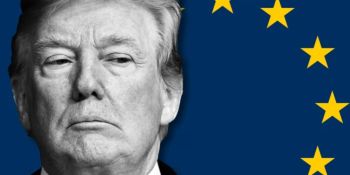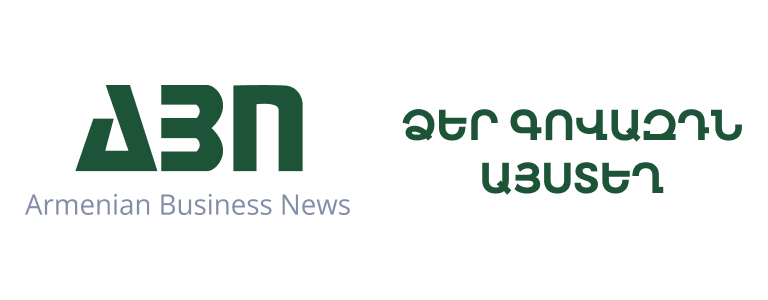-

Why is the boundary between a leader's professional and personal identity important?
2025/08/03/ 10:21 -

Three practical steps that will prevent you from losing the people who keep your business running
2025/08/01/ 17:17 -

IDBank's new premium business card – Mastercard Business Preferred
2025/08/01/ 12:45 -

Which professions will be the first to lose their jobs due to AI. Microsoft's warning
2025/07/31/ 14:21 -

Why do some organizations turn AI into a strength, while others fail?
2025/07/30/ 17:49 -

Gucci's management has changed against the backdrop of declining sales
2025/07/30/ 16:57 -

USA is exerting pressure to extract agreements
2025/07/30/ 14:36 -

The Armenian state budget has deviated from the course: what the analysis of the Luys Foundation says
2025/07/29/ 12:43 -

How does the Armenian economy respond to challenges? facts from the data for May-June
2025/07/28/ 12:40 -

Beating the heat, earning idcoins: Idram & IDBank
2025/07/25/ 17:36
 Subscribe
Subscribe

Why is the boundary between a leader's professional and personal identity important?
News |

In recent years, the mantra "be yourself" has become very popular in corporate culture.
In presentation form, "authenticity" can harm the leader
In recent years, the mantra of "be yourself" has gained significant traction in corporate culture. Initially, it was created to promote psychological safety, inclusivity, and open communication. However, as noted by a recent analysis from Harvard Business Review, when this principle is applied at the senior leadership level, it can become not only ineffective but also harmful.
Frontline workers are expected to be sincere and open, and such sincerity can indeed contribute to the formation of a healthy atmosphere. But the CEO or C-suite leader is in a different role: the higher the position, the more dangerous the consequences of "unfiltered" self-expression.
Power without boundaries—strange consequences
Psychological research shows that power has the ability to weaken inhibitory mechanisms. It reduces empathy and self-control, revealing a person's hidden toxic sides. As Dacher Keltner notes in his book "The Power Paradox," people often rise to leadership positions through prosocial behavior, but they forget that behavior once they gain power.
When this phenomenon is combined with the modern "cult of authenticity," we see leaders transforming into public figures, constantly expressing their inner feelings regardless of the consequences. However, this can undermine organizational stability and authority.
What dangers exist in being overly "authentic"
Harvard Business Review identifies four main issues that arise when leaders erase the boundaries between their personal and professional identities.
1. Being overly vulnerable weakens authority.
Leaders of organizations are expected to exhibit clarity, confidence, and competence. When a leader openly expresses their emotions and personal issues in an unrestrained manner, it can undermine that confidence.
2. Personal values can create division.
While it may be tempting to urge corporate leaders to take public stances on any issue, such statements often divide rather than unite. Especially in global companies, where ideological diversity is accepted, leaders' political or cultural beliefs can alienate parts of the staff.
3. Emotional intelligence requires self-regulation, not immediacy.
Good leaders act according to the situation by managing their emotions and influencing others. This is essentially a "performance" that requires conscious behavior and strategy rather than self-disclosure.
4. Dark sides should be restrained, not unleashed.
Power often amplifies existing issues in people—narcissism, paranoia, or aggression. Studies show that these traits become more pronounced in senior leaders, especially when unchecked. Therefore, it is crucial to be aware of and manage these sides.
What can leaders do to maintain balance
HBR offers a number of practical approaches to maintaining healthy boundaries between personal and professional identities.
- Be selectively open. Expressions of useful authenticity for the mission are welcome. However, spreading personal drama is not.
- Create an atmosphere of predictability. A leader's stable behavior and predictable responses are more valuable than unexpected candidness and emotional outbursts.
- Demonstrate values through actions, not just words.
- Consistency of actions is more convincing than performance posts on social media.
- Maintain personal space. Leaders are not required to have a constant online presence or be available. They should set an example in maintaining a healthy balance between work and personal life.
- Choose compassion over ego. A good leader is one who listens, understands, and gives others a sense of visibility.
Conclusion. Being a good leader means serving, not just expressing oneself
True leadership does not consist of unrestrained displays of the "real self." It requires conscious behavior, foresight, and responsibility. In fact, the most honest thing is when a leader acts in a way that promotes the flourishing of their team and organization, rather than focusing solely on their own feelings.
*The article was also prepared using data from AI․












